Anchor Tenant
Learn what an anchor tenant is in Canadian commercial real estate and how these key retailers affect leasing, traffic, and property value.

June 09, 2025
What is an Anchor Tenant?
An anchor tenant is a large, well-known retailer or business that occupies a significant portion of a shopping centre or commercial development and attracts customer traffic to the area.
Why Anchor Tenants Matter in Real Estate
In Canadian commercial real estate, anchor tenants increase the visibility, stability, and desirability of retail plazas or malls for both consumers and other businesses.
Characteristics of anchor tenants:
- National or multinational chains (e.g., grocery stores, department stores)
- Long-term lease agreements
- Preferential lease rates or build-to-suit arrangements
Anchor tenants help drive foot traffic, making it easier to lease adjacent smaller retail units. Their presence may also boost property values and financing opportunities for landlords.
Understanding anchor tenants is key to evaluating retail site viability and investment potential.
Example of an Anchor Tenant in Action
A major grocery store serves as the anchor tenant in a suburban plaza, drawing shoppers to smaller retail stores in the same complex.
Key Takeaways
- Drives traffic to commercial developments
- Typically a large, well-known retailer
- Often receives lease incentives
- Increases leasing success for smaller tenants
- *Boosts property valuation and stability
Related Terms
- Outparcels
- Commercial Lease
- Tenant Mix
- Triple Net Lease
- Retail Zoning

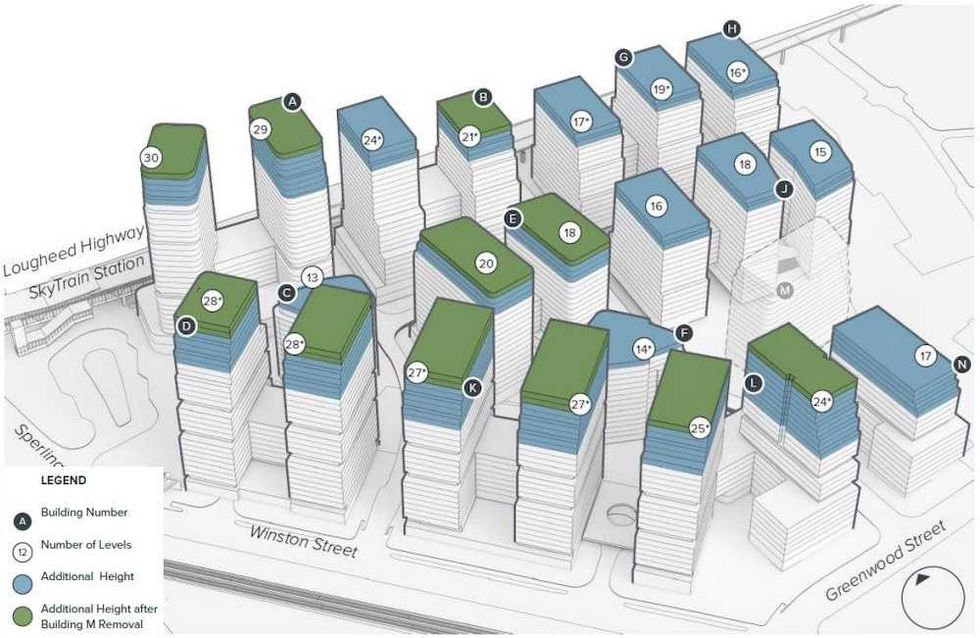 Building height changes from the previous master plan apllcation. (Peterson)
Building height changes from the previous master plan apllcation. (Peterson)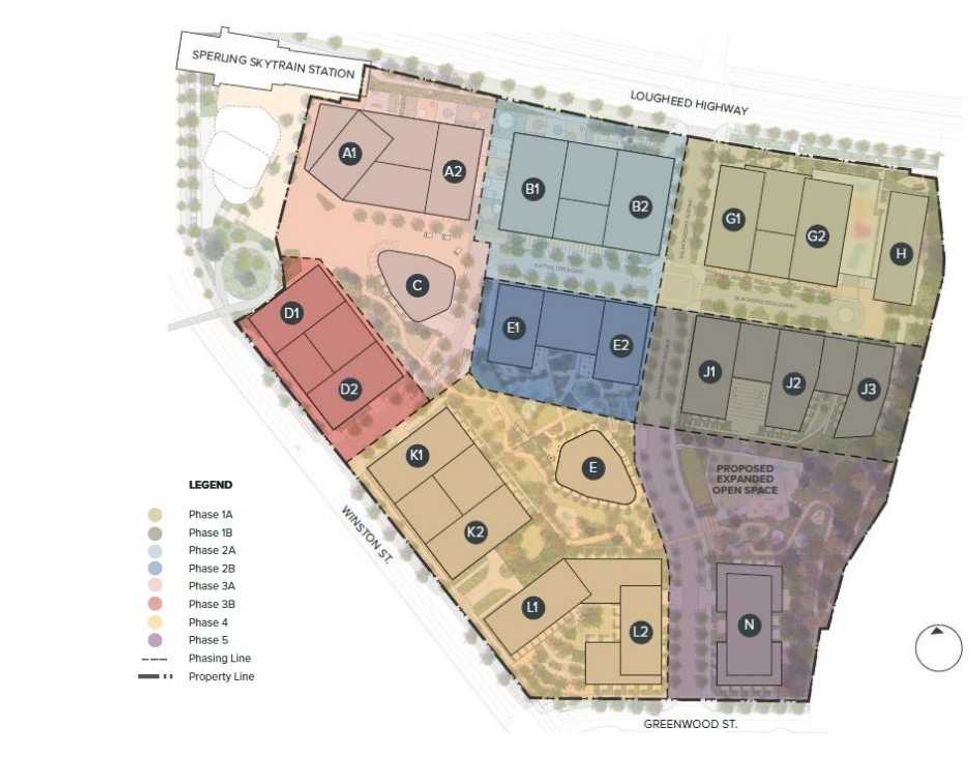 An overview of Blake Village and the phasing plan. (Peterson)
An overview of Blake Village and the phasing plan. (Peterson)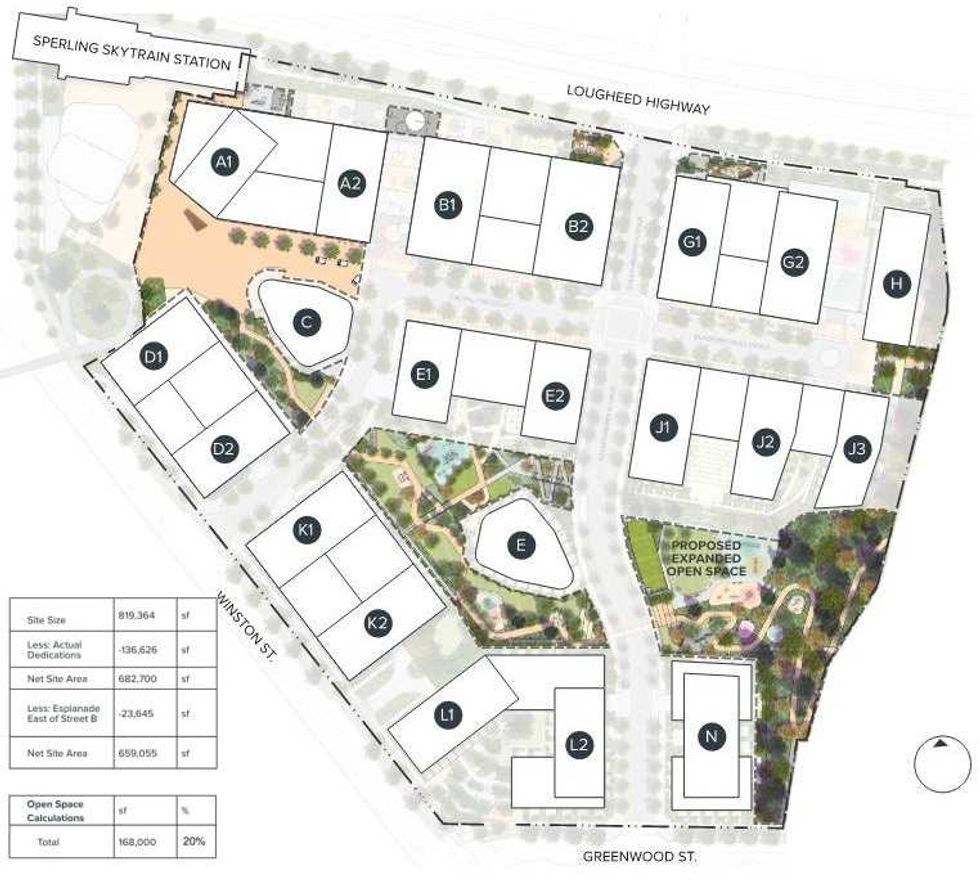 An overview of Blake Village and planned open space. (Peterson)
An overview of Blake Village and planned open space. (Peterson)







 Eric Lombardi at an event for Build Toronto, which is the first municipal project of Build Canada. Lombardi became chair of Build Toronto in September 2025.
Eric Lombardi at an event for Build Toronto, which is the first municipal project of Build Canada. Lombardi became chair of Build Toronto in September 2025.
 Rendering of 9 Shortt Street/CreateTO, Montgomery Sisam
Rendering of 9 Shortt Street/CreateTO, Montgomery Sisam Rendering of 1631 Queen Street/CreateTO, SVN Architects & Planners, Two Row Architect
Rendering of 1631 Queen Street/CreateTO, SVN Architects & Planners, Two Row Architect Rendering of 405 Sherbourne Street/Toronto Community Housing, Alison Brooks Architects, architectsAlliance
Rendering of 405 Sherbourne Street/Toronto Community Housing, Alison Brooks Architects, architectsAlliance

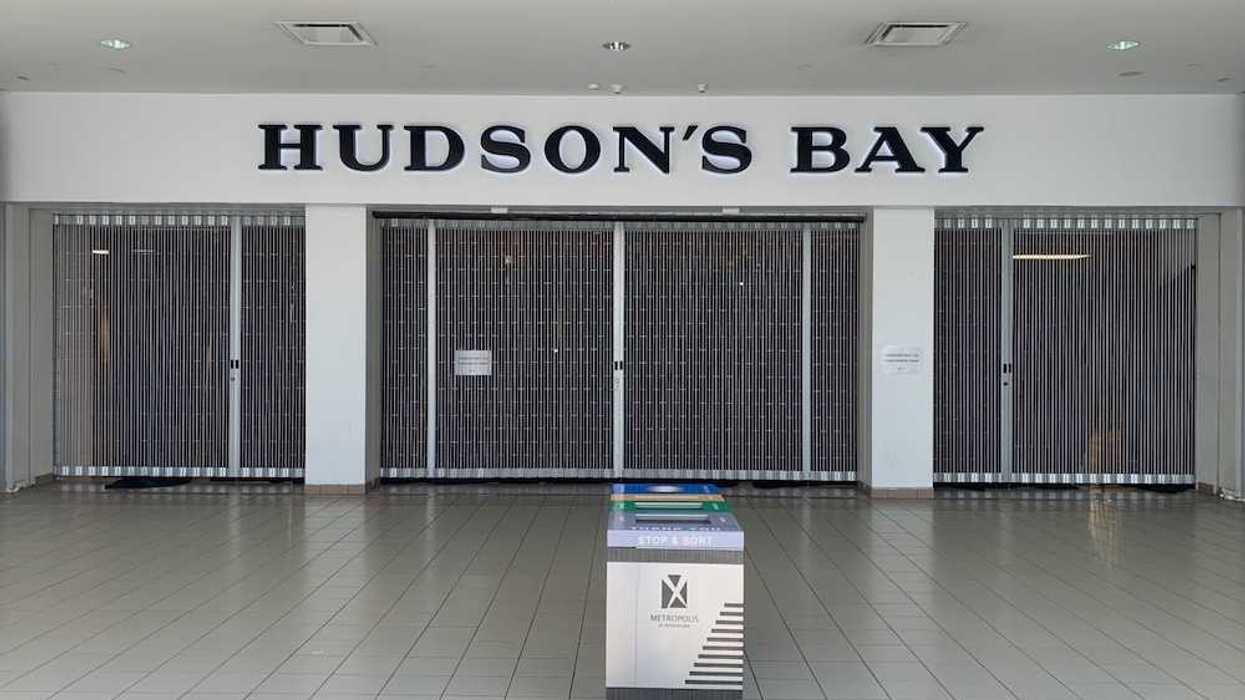
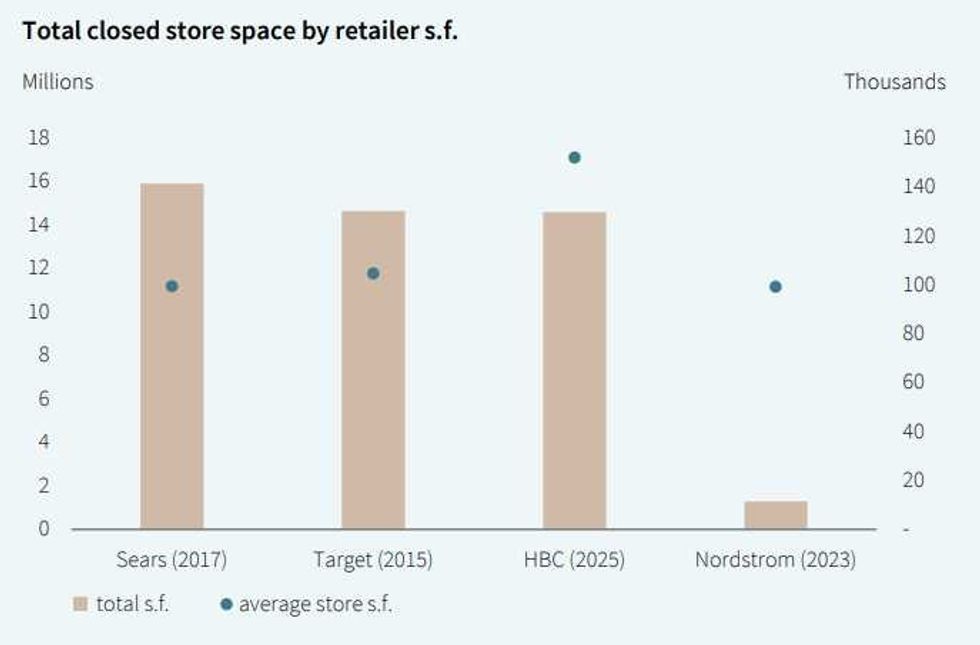 Hudson’s Bay vacated about as much space as Target did in 2015. (JLL)
Hudson’s Bay vacated about as much space as Target did in 2015. (JLL)